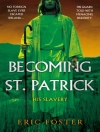In ‘Diana of the Crossways, ‘ George Meredith presents a compelling exploration of societal norms and the complexities of personal identity through the character of Diana, an independent and intellectual woman navigating a patriarchal society. Set against the backdrop of Victorian England, the narrative employs Meredith’s characteristic wit and a rich, lyrical prose style, which intricately intertwines philosophical musings and sharp social commentary. The novel’s innovative structure, combining realism with elements of psychological depth and satirical elements, reflects the burgeoning modernist sensibilities of the era, making it a cornerstone in the evolution of the novel form. George Meredith, an influential figure in Victorian literature, was deeply shaped by his experiences of personal turmoil and social critique. His own tumultuous relationships and advocacy for women’s rights inform the novel’s themes, allowing him to craft a protagonist that resonates with readers seeking both emotional authenticity and intellectual engagement. Meredith’s literary career spans poetry and prose, positioning him as a bridge between classic Victorian literature and modernism. ‘Diana of the Crossways’ is a must-read for those interested in feminist literature, Victorian society, or the evolution of the novel. Through Diana’s journey, Meredith invites readers to question the constraints of gender and societal expectations, making it an essential and thought-provoking text that continues to inspire contemporary discussions.
About the author
George Meredith (1828–1909) was a celebrated English novelist and poet, renowned for his sophisticated prose style and insightful portrayals of Victorian society. He was born in Portsmouth, England, and after attending school in Germany, he articled at a solicitor’s office, but found his true calling in literature. Meredith’s writing is characterized by a wry wit, psychological depth, and a predilection for exploring the complexities of human relationships and social mores. One of his most acclaimed novels, ‘Diana of the Crossways – Complete’ (1885), exemplifies his skill in dissecting the roles and restrictions faced by women in the 19th century. The protagonist, Diana, navigates the treacherous waters of gender norms and societal expectations, embodying Meredith’s feminist sympathies. A frontrunner in the use of psychological realism, Meredith’s work prefigured the modernist approach to novel writing. His novels often addressed the struggles for personal integrity and authenticity in a rapidly changing world, as seen in works like ‘The Egoist’ (1879) and ‘The Ordeal of Richard Feverel’ (1859). With a literary career spanning over four decades, George Meredith left a lasting legacy on English literature, and his works continue to be studied for their rich language, intricate narratives, and enduring themes.












